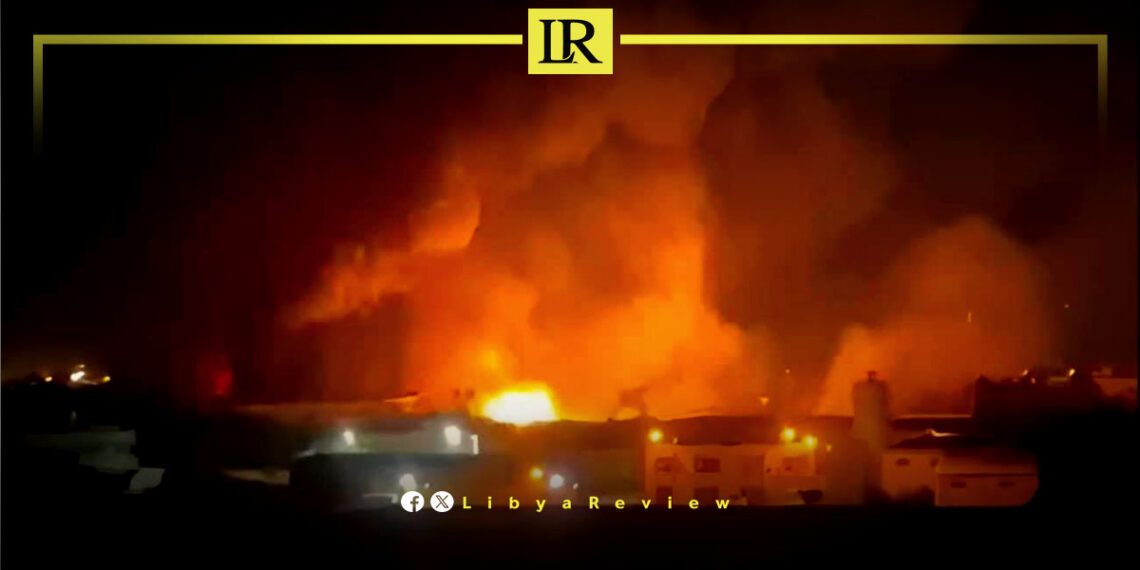Misrata endured a night of terror on Sunday when a massive fire broke out inside an ammunition depot belonging to the “Eagles Battalion” in the Al-Skeirat district, unleashing a chain of violent explosions that rattled the entire city.
For hours, residents reported deafening blasts as rockets and shells flew chaotically across residential neighborhoods. Grad missiles and artillery rounds landed in densely populated areas, striking the city’s central park, damaging homes, and leaving a giant crater on the Anbak road. Families abandoned their houses in panic as videos shared online captured scenes of fear, destruction, and chaos.
The explosions triggered widespread power outages and disrupted telecommunications across Misrata. Security forces closed roads leading to the Fourth Ring Road to prevent access to the danger zone, as fears grew of further detonations. The Ambulance and Emergency Service deployed multiple teams, reporting a total of 16 injuries, including six that were treated at Misrata Central Hospital.
Although officials later claimed the fire was contained, the incident sparked outrage and renewed warnings about the dangers of storing heavy weapons inside urban areas. Residents of Al-Skeirat held a protest on Monday demanding the removal of ammunition depots from civilian districts, calling them “time bombs” that place thousands of lives at constant risk.
Political figures and civil society activists echoed the anger, describing the disaster as the inevitable result of years of weak security governance and the unchecked militarization of Libyan cities. The same depot had reportedly suffered previous accidents, yet no comprehensive action was taken to resolve the threat.
This latest explosion is part of a troubling pattern. Since 2020, several Libyan cities—including Tripoli, Tajoura, Zliten, and Zuwara—have witnessed deadly fires and blasts at munitions storage sites, all linked to militias operating without effective state oversight. Each time, officials issue warnings and promises, but lasting solutions remain absent.
The Al-Skeirat blast also comes at a time of heightened tension around Tripoli, where rival armed groups have been mobilizing amid warnings of renewed conflict. For civilians, the combination of uncontrolled weapons depots and looming clashes means daily life is overshadowed by fear and uncertainty.
The Misrata tragedy underscores a harsh reality: without a unified state security system to control weapons and dismantle militia depots, Libya’s cities remain vulnerable to catastrophic explosions. Until then, civilians will continue to bear the heaviest price of a country still trapped in political division and armed chaos.


